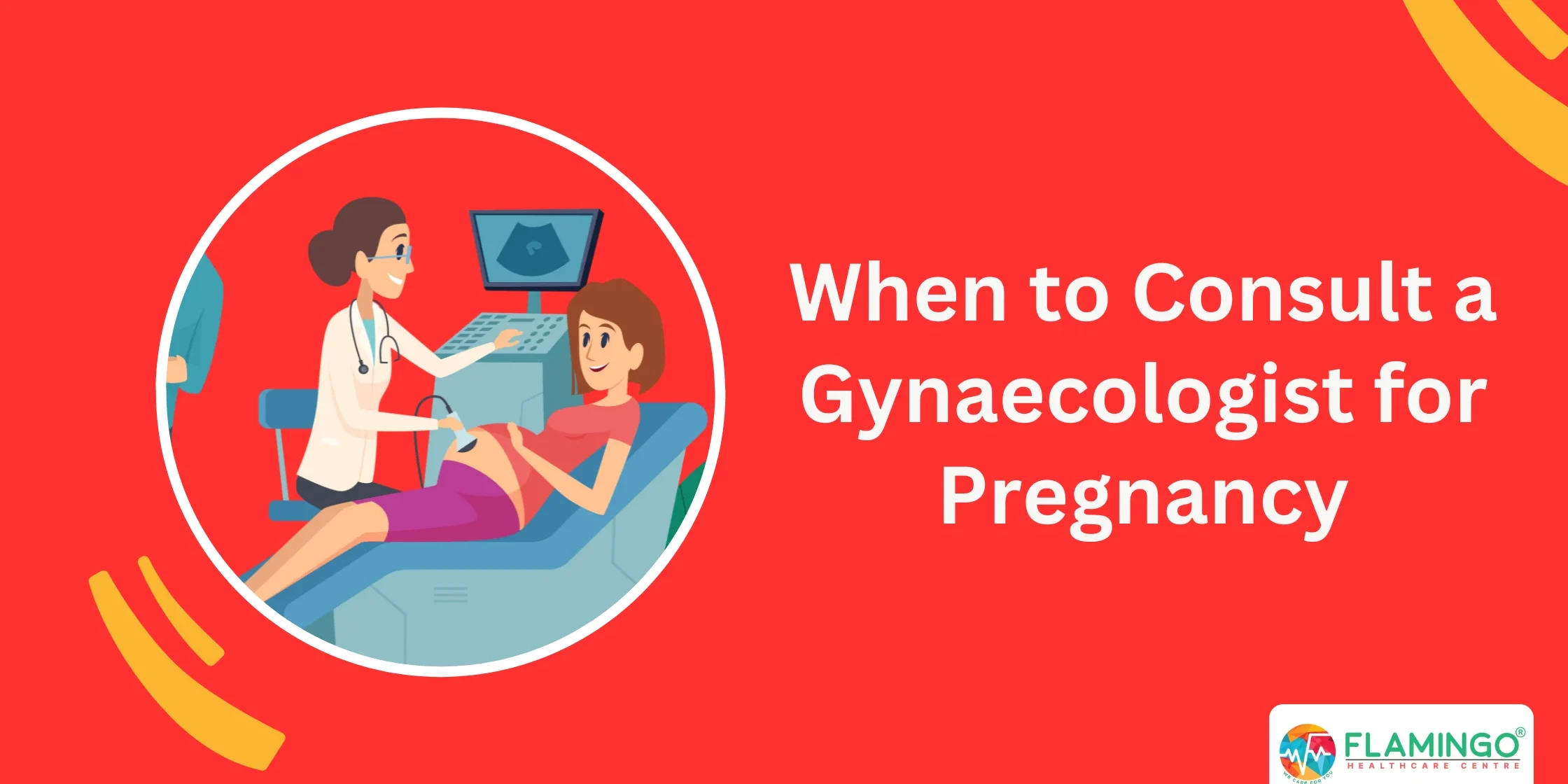Are you planning to start a family or already suspect you might be pregnant? Consulting a gynecologist for pregnancy at the right time ensures a healthy journey for both you and your baby.
Early and regular visits to a gynecologist provide the necessary guidance, support, and medical care during this critical time.
In this article, we clear all your doubts regarding the consultation with your gynecologist, from the initial visit through to the final consultation.
When to Seek a Gynecologist for Pregnancy?
Consult your gynecologist immediately if you experience any of the following symptoms or complications:
- Severe abdominal pain or cramping
- Heavy bleeding or spotting
- Severe headaches or vision changes
- Sudden swelling of hands, feet, or face
- Reduced fetal movement
By finding the problem early and with the necessary action steps, a gynecologist can prevent serious complications and ensure the health of both mother and baby.
Why See a Gynecologist Before Conception?
Consult a gynecologist before trying to conceive to identify and address any health issues that might affect your pregnancy. During this visit, your gynecologist will:
- Review your medical history: Understand any pre-existing conditions or past surgeries that could impact your pregnancy.
- Discuss daily life changes: Provide advice on diet, exercise, and habits that promote fertility.
Suggest prenatal vitamins: Ensure you start taking folic acid and other essential nutrients early.
When to Schedule Your First Appointment?
If you suspect you are pregnant, schedule your first gynecologist appointment as soon as possible. Early signs of pregnancy include:
- Missed period
- Nausea or vomiting
- Frequent urination
- Fatigue
- Breast tenderness
Confirming your pregnancy early allows your gynecologist to:
- Perform an ultrasound: Confirm the pregnancy and estimate the due date.
- Conduct initial screenings: Check for conditions like gestational diabetes and infections.
Provide early guidance: Offer advice on how to manage symptoms and what to expect.
Regular Prenatal Visits
Regular prenatal visits are vital to monitor the progress of your pregnancy and address any complications promptly. During these visits, your gynecologist will:
- Track your baby’s growth: Use measurements and ultrasounds.
- Monitor your health: Check blood pressure, weight, and urine tests for signs of conditions like preeclampsia.
Offer prenatal testing: Screen for genetic conditions and other potential issues.
Identify and Manage High-Risk Pregnancies
Certain factors classify a pregnancy as high-risk, requiring more frequent consultations with your gynecologist. These factors include:
- Advanced maternal age (35 or older)
- Pre-existing health conditions (diabetes, hypertension)
- Multiple pregnancies (twins, triplets, etc.)
- History of pregnancy complications (miscarriages)
In these cases, your gynecologist will:
- Provide specialized care: Develop treatment plans to manage risks.
- Coordinate with specialists: Work with maternal-fetal medicine experts.
Monitor closely: Schedule more frequent visits and tests.
Final Consultations with your Gynaecologist
As you approach your due date, consultations with your gynecologist will focus on preparing you for labor and delivery. These final visits will include:
- Discussing your birth plan: Cover preferences for labor, pain management, and delivery.
- Final health checks: Ensure both mother and baby are ready for birth.
- Instructions for labor onset: Recognize signs of labor and know when to go to the hospital.
Postpartum Care
Follow-Up With Your Doctor After Delivery
Consult your gynecologist after delivery to ensure a healthy recovery and address any postpartum issues. Postpartum visits typically cover:
- Physical recovery: Check for healing, manage pain, and address any complications.
- Emotional well-being: Screen for postpartum depression and anxiety.
Family planning: Discuss contraception options and future pregnancies.
Conclusion
Consulting a gynecologist at the right times during your pregnancy journey ensures the health and well-being of both you and your baby. From preconception care to postpartum follow-up, your gynecologist plays a vital role in providing comprehensive medical support and guidance.
Don’t hesitate to schedule an appointment whenever you have concerns or questions. Proactive care can make all the difference in achieving a healthy and happy pregnancy.
FAQs
1. When is the first appointment with a gynecologist when pregnant?
If you suspect you might be pregnant, it is best to visit your gynecologist right away. You should also schedule an appointment about five to six weeks after your last period to prevent chances of ectopic pregnancies or other complications.
2. When should a girl go for her first gynecology visit?
A young girl should have her first gynecologist visit when she is around 13 to 15 years of age. This is when most girls attain puberty, and their reproductive organs start to develop.
3. Can your OB-GYN tell you when you got pregnant?
Your OB-GYN will use ultrasound and various other measurements to determine how far along you are in your pregnancy. Though it might give you an accurate date of conception, you can get an idea of when you got pregnant.
